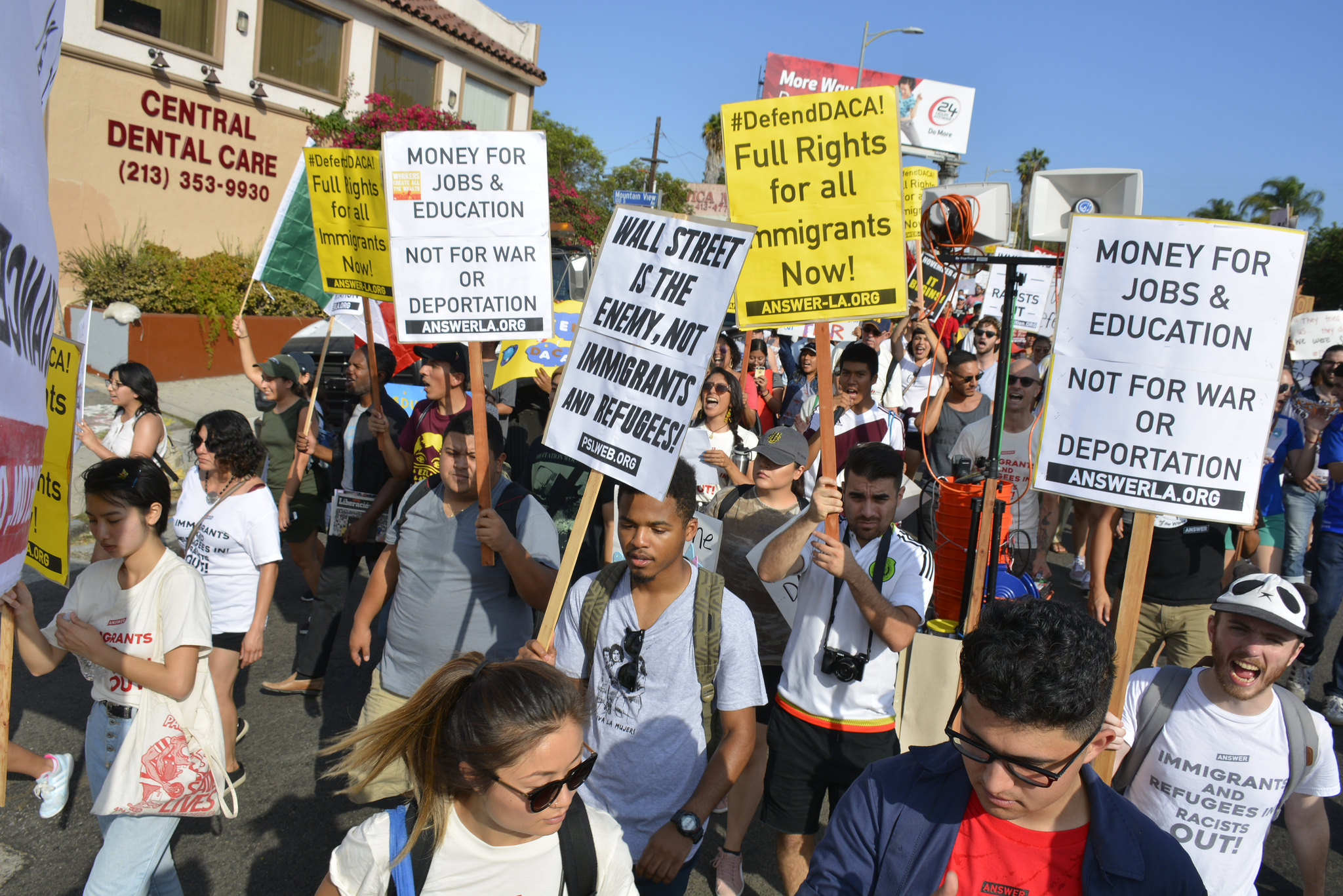As night temperatures drop below freezing in the Sonoran Desert, thousands of asylum seekers wait at the border wall for Customs & Border Patrol officers to transport them to detention centers and commence their asylum process. In December 2023, the Tucson, Arizona, sector set a new record for weekly encounters during which federal officials detained over 17,500 migrants in seven days. Near the Southern Arizona town of Sasabe, asylum seekers often wait days at a time in harsh weather conditions with very little food, water, and supplies. When warmongering politicians use the lives of asylum seekers as bargaining chips for military funds across seas, they fail to acknowledge the humanitarian crisis and the cause of the influx of asylum seekers at the southern border.
Presently, there have been tense debates in Washington regarding the allocation of additional funds for the border; these allocations have been proposed in conjunction with increased funding for the war in Ukraine and additional aid to Israel. Republicans are refusing to approve any further budgets unless the militarization of the border is resumed and asylum regulations are tightened. As it currently stands, migrants at the border are taken to CBP centers where they begin the asylum process; however, the process is erratic, and policies such as Title 42 (the COVID-19 policy that Trump used to turn away asylum seekers at the border in the name of public health) can be implemented or waived (as in the case of Ukrainian asylum seekers) at any time.
The border crisis is also in the news as Texas has provoked a conflict with the federal govenment by using state law enforcement and the National Guard to police its border with Mexico. Coupled with the use of immigration as a political pawn, this exemplifies a troubling trend of both parties exploiting the lives of asylum seekers for political gain, while the humanitarian crisis for migrants gets worse.
Humanitarian crisis at the border in Arizona
Liberation News reached out to a non-profit organization that provides legal and social services to undocumented immigrants and asylum seekers in Arizona. The paralegal interviewed requested anonymity. When asked about the legal hoops migrants have to go through when seeking asylum, the paralegal described the process as long and treacherous.
“Asylum-seeking must occur at the border. This is how asylum and refugee status differ. The process looks different between adults, families, and unaccompanied minors (UACs). For UACs, they are sent to a short-term shelter after being processed and detained by CBP. Once in a short-term shelter, they are allowed to reunify with a sponsor, if approved by ORR (Office of Refugee Resettlement). Simultaneously, they now have a legal case against them where they must defend themselves against the immigration allegations given to them.”
The paralegal described how the system’s structure makes the lives of asylum seekers difficult and how the aim of the structure is to make it nearly impossible to navigate through immigration courts. “Since immigration violations are considered a civil infraction, immigrants are not granted a public attorney as is legally obligated in criminal court,” the paralegal continued. These institutional hurdles are created to encourage migrants to self-deport and return to their home country.
“I have listened to children who recount tales of border patrol’s abuse,” the paralegal shared. “The majority of minors who come across seeking asylum will experience verbal abuse, interrogation, detention without proper food and assault. There are minors who have been kicked by border patrol, punched, and left outside in the cold for more than 72 hours.”
Local humanitarian aid groups, like No Más Muertes, have responded to the border crisis by providing food, water, clothing and shelter to asylum seekers who are stranded in the desert. NMM, in collaboration with the Tucson branch of the Party for Socialism and Liberation, put out a call for Tucson community members to donate aid and clothing to be sent out to the border wall daily. For years, CBP has harassed NMM volunteers through intimidation and arrests. CBP has stated that they do not have the capacity to respond to humanitarian needs of the high volume of people crossing the border, but the reality is that CBP has willingly chosen not to provide sufficient aid.
In a Tweet, NMM describes CBP’s lack of response as “weaponized negligence.”
“Why hasn’t there been a more coordinated government response to the humanitarian crisis unfolding in open-air detention camps along the border? The answer is weaponized negligence. Any action that makes seeking asylum more humane is seen as ‘encouraging’ more people to come, which is the opposite of the US border enforcement strategy of prevention through deterrence. The goal is suffering. The goal is violence.” No Más Muertes via twitter.
US imperialism as a direct cause of immigration
While it is important to note that immigration is influenced by many factors, including the search for economic opportunities as well as political instability and social conditions in the home country, it is undeniable that U.S. imperialism has played a huge role in shaping migration flows in recent years. The surge of immigrants coming from the Global South is a direct result of economic exploitation and political instability caused by imperialist powers.
Over the last decade, the numbers of migrants have increased from Venezuela and Cuba, two countries under inhumane sanctions imposed by the United States.
The economy of Venezuela is heavily dependent on oil. Consequently, any restrictions on Venezuela’s oil trade, like the economic sanctions imposed by the U.S., have a disastrous impact on the country’s economy. The people of Venezuela are faced with the decision of either leaving or enduring the debilitating consequences of these sanctions, like food scarcity, inflation, deteriorating education, shortages of water and electricity, and lack of medicine and hygiene.
In 2017, the number of Venezuelan-born residents in the U.S. was a little more than 350,000 people. Between 2022 and today, the number of Venezuelans who have crossed the U.S. border jumped from 189,520 to 262,633. It is not a coincidence that 2017 marked the start of this increase; 2017 was the year the Trump administration implemented new rounds of sanctions against Venezuela, including Executive Order 13808, which prohibited the trade of Venezuelan bonds and the accrual of new debt by the national government and oil companies.
Regarding Cuba: since 1962, the cruel embargo the U.S. has imposed on Cuba has prevented the island from trading with other nations and having access to outside resources. Notably, in 2021, Cuba developed its own COVID-19 vaccine but had difficulty distributing it because of a syringe shortage that resulted directly from sanctions. The vast majority of people who leave Cuba do so because of economic chokeholds caused by sanctions. Despite what Western media wants people to believe, the socialist government in Cuba is not the leading reason for migration. Almost 87% of Cubans support the Communist Party of Cuba.
As well, a large number of asylum seekers at the border are also from the Middle East and North Africa. Most seek refugee status due to political violence and unrest in their home country caused by U.S. intervention, as has been seen for the past more than 20 years in Iraq, Libya, Syria and elsewhere.
The oppression of immigrants and asylum seekers can be traced back to the capitalist system. The cruel tactics implemented by imperialism abroad are brought back home to terrorize asylum seekers at the border. Today we see people hit the streets in support of the Palestinian struggle, showing that no one is fully liberated until we all are free. From Mexico to Palestine- all the walls have got to go.






